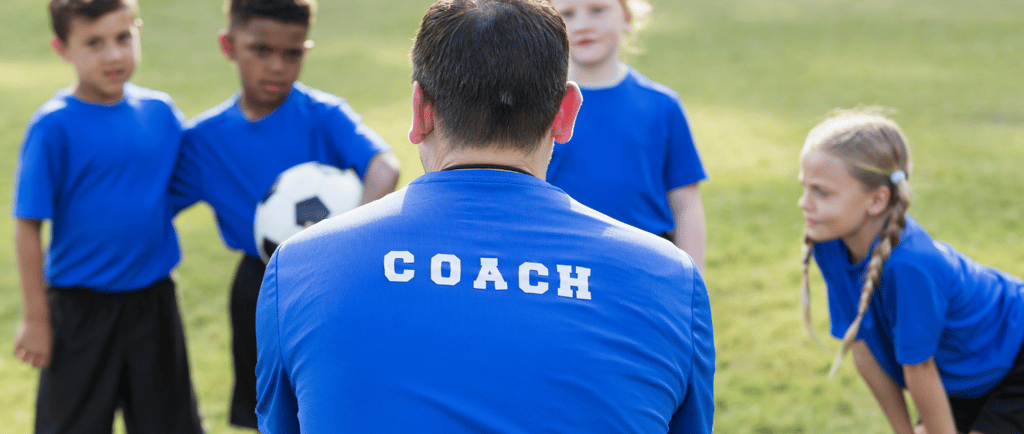The Small Things Matter
Don't get caught up with end results like game wins and overlook the importance of the small things that enable success. And not just winning games...there's more to it than that.
8/29/20244 min read


In the high-energy world of youth sports, it’s easy to get caught up in the big plays, the final scores, and the pursuit of victory. However, as a parent-coach, one of the most impactful strategies you can employ is to focus on the small things—those seemingly minor details that, when mastered, contribute to overall success. Whether it’s in practice or during games, emphasizing small wins and attention to detail can have a profound effect on a young athlete’s development, confidence, and engagement. This blog will explore the importance of focusing on the small things and offer tips to help you implement this approach effectively.
Why Small Things Matter
Focusing on the small things in sports means paying attention to the fundamentals, the details, and the incremental improvements that make a big difference over time. For young athletes, these small wins can build confidence, keep them engaged, and lay the foundation for long-term success.
According to research published in the Journal of Sport and Exercise Psychology, children who experience regular, small successes are more likely to stay motivated and engaged in sports. These small wins provide a sense of accomplishment and contribute to a positive athletic experience. Additionally, the Positive Coaching Alliance emphasizes that breaking down complex skills into smaller, manageable parts can help young athletes master them more effectively and with greater confidence.
Techniques for Focusing on the Small Things
Break Down Skills into Small, Manageable Steps
One of the most effective ways to teach young athletes is to break down complex skills into smaller, more manageable parts. This allows them to focus on mastering each step before moving on to the next.
Progressive Drills: Use progressive drills that focus on one aspect of a skill at a time. For example, in basketball, you might focus first on proper foot positioning before moving on to dribbling technique, and finally, incorporating both into a full play.
Repetition with Purpose: Emphasize purposeful repetition. For example, have players practice the same passing drill multiple times, but with a specific focus each time, such as accuracy, speed, or technique.
Celebrate Small Wins
Recognizing and celebrating small wins can have a significant impact on a child’s confidence and motivation. These small victories can be as simple as mastering a new skill, improving on a previous performance, or showing great effort during practice.
Verbal Praise: Offer specific, positive feedback when you notice improvement, such as “Great job keeping your eyes up while dribbling” or “Your footwork was really sharp on that play.”
Mini-Awards: Consider implementing a system of mini-awards for specific achievements, such as “Best Passer of the Day” or “Most Improved Defender.” These recognitions can boost self-esteem and encourage continued effort.
Keep Practices Focused and Structured
Young athletes can easily get lost or disengaged during long practices. Keeping practices focused on specific, small goals can help maintain their attention and enthusiasm.
Short, Focused Drills: Design practices with short, focused drills that target specific skills. Rotate these drills frequently to keep players engaged and to address various aspects of the game.
Clear Objectives: Begin each practice by outlining the objectives for the day. Let players know what specific skills or behaviors you’ll be focusing on, and revisit these goals at the end of practice to reinforce learning.
Encourage Self-Monitoring and Reflection
Teaching athletes to monitor their own progress and reflect on their performance is a powerful tool for development. This not only helps them recognize their small wins but also fosters a sense of ownership over their improvement.
Journaling: Encourage players to keep a practice journal where they can note what they learned, what they did well, and what they want to improve on. This practice reinforces the importance of small steps in their development.
Post-Game Reflection: After games, take a few minutes to reflect with the team on what went well and what could be improved. Highlighting small successes, even in a loss, helps maintain a positive focus.
Focus on Fundamentals
The fundamentals are the building blocks of any sport. By consistently emphasizing the importance of these basics, you help your players develop a strong foundation that will support more advanced skills.
Daily Fundamentals: Dedicate a portion of each practice to fundamental skills, regardless of the players’ age or skill level. This could include things like footwork, passing, or basic conditioning.
Consistency: Reinforce the fundamentals consistently throughout the season. Make it clear that even the most advanced players never outgrow the need to master the basics.
Teach the Value of Patience and Persistence
Learning to appreciate the process and the incremental progress it brings is a valuable lesson in sports and life. Teach your players that big improvements come from consistent, small efforts over time.
Long-Term Perspective: Help players understand that skill development is a marathon, not a sprint. Celebrate their persistence in working on small improvements, even if they don’t see immediate results.
Patience in Practice: Encourage patience in practice. Remind players that it’s okay to struggle with a new skill and that persistence will pay off in the long run.
Additional Insights
A study from the Journal of Applied Sport Psychology found that athletes who focus on small, process-oriented goals tend to experience less anxiety and greater satisfaction with their performance. Additionally, the American Psychological Association highlights the concept of “mastery-oriented feedback,” which focuses on effort, strategy, and progress rather than outcomes, as a key factor in maintaining motivation and engagement in young athletes.
Conclusion
In the fast-paced world of youth sports, it’s easy to get caught up in the big plays and the final scores. However, as a parent-coach, you have the opportunity to shift the focus to the small things—the details, the fundamentals, and the incremental improvements that build the foundation for long-term success. By breaking down skills, celebrating small wins, maintaining focused practices, encouraging self-reflection, emphasizing fundamentals, and teaching patience, you can help your players stay engaged, motivated, and on the path to becoming well-rounded athletes.
Remember, it’s the accumulation of small victories that leads to the big ones. With these strategies, you can create an environment where every player feels valued, supported, and excited to keep improving, one small step at a time.

